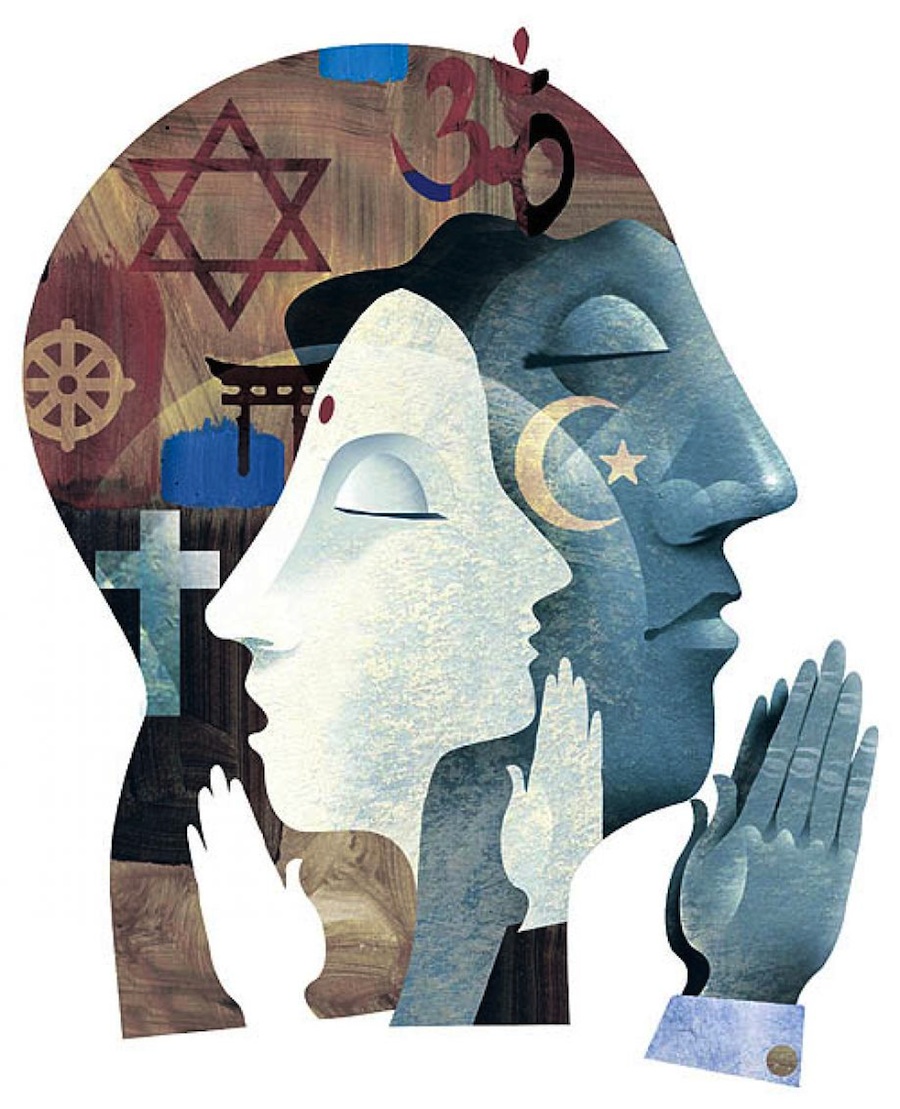When sociologists study religion they are not concerned with the supernatural per se; they look for the social expression of religious experience, and religious beliefs and the inspired social behaviour. The social roles connected with religion, such as that of the clergy and the social organisation of religion (sects and denomination, cults) are also studied by sociologists.
To answer this elusive and difficult question, Emile Durkheim undertook a study of Australian aborigines, feeling that elementary forms of religion could be best studied in tribal culture. He presented his views on religion in his book ‘The Elementary Forms of the Religious Life’. In his work he made a distinction between everyday ordinary events which he called profane from those things which are held in awe, in fear, reverence, and respect and kept apart as the sacred.
The sociology of religion also deals with a variety of social activities that many may not consider religious, some beliefs may not have supernatural aspect to it but are still held as sacred. Some beliefs provide meaning and answers to life’s questions which are normally under the preview of religion. Sociologist Robert Bellah uses the term civil religion to refer to a set of symbols, beliefs, values, and practices about ultimate meaning of life in a particular society.
ADVERTISEMENTS:
Civil religion provides secular alternatives to religion. Some political ideologies, for instance communism, assume religious quality. Nationalising as an ideology has also the sacred quality that has ritual accompaniments which can be brought under the definitional ambit of civil religion.
“Religion then, can be viewed as a system of sacred things and their interrelationship. Above all, religion is a social phenomenon, having to do with those aspects of human existence that are socially defined as sacred. Religious systems are defined and constructed by people – they are human creations. Religion is a social product, and people collectively produce religion.”
It is clear that society and religion are closely related. One way to examine that interrelationship is to understand the social significance of religion, both in the positive functional consequences and its negative impacts. Some analysts, especially the evolutionary thinkers looked at religion as assuaging the fears of people-fear arising out of unexplained catastrophist or the power of nature.
Thus, it is explained that in many primitive or simple societies, there is a stress on appropriating nature and worship of nature and attributing supranational forces to things and living beings.
ADVERTISEMENTS:
Religion continues to be a source of comfort and consolation for many in times of crises of all kinds. Religion helps accept the inevitable and unchanging aspects of life-be it death, catastrophes etc.
Religion also provides a world view or a cosmology which helps explain reality and provides a world view that acts as guide in an uncertain world. Most religions also have accent on moral and ethical issues which not only provide guidelines to individuals but also help in maintenance of societies.
Another function of religion is that it provides a sense of identity to the adherent. In a society which is increasingly marked by rapid changes, identification with a religious community gives many answers to questions. The congregational aspect of religion, which usually revolves around rituals brings but the community aspects, which helps an individual to locate herself or himself in a society.
We have seen that religion can be seen as a source of order and stability in society and thus perform a legitimating function. By legitimising the norms and values of society, religion may also obscure the real power relationships and hierarchies. A religious system diverts the fact that society is constructed by people and therefore can be changed by them.
ADVERTISEMENTS:
Religion therefore can sometimes come in the way of change. Another dysfunction of religion is that it tends to provide an overarching explanation of life and reality which is viewed as sacred and inviolable. This view does not allow for searching further knowledge. Religion thus is a complex phenomenon which has many complex aspects.
